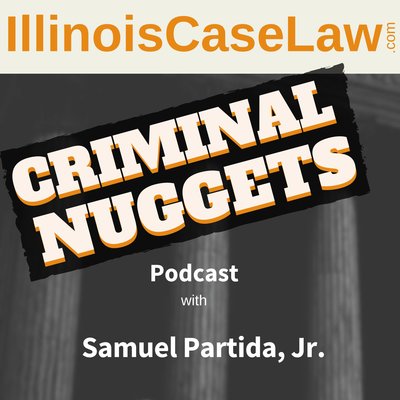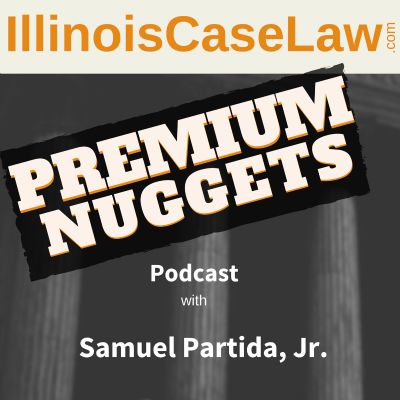Apr 16, 2015

Was there improper wintess vouching? This was the question after the prosecutor told the jury he “checked out” his witness’s story?
Don’t Use the First Person “I”
As a prosecutor I was always taught never say the word “I” in closing argument. Any references to my personal beliefs or to the State’s Attorney’s believes were off limits.
“Don’t tell them what you think, explain to them what the evidence shows!” - This is more or less what I was told as a prosecutor learning the trade of jury trial work.
Why?
I was never really told at first exactly why this was a rule. Later, I figured out that it can be reversible error to if the first person is used in the wrong way!
That was enough for me to know to stay away from the first person “I”.
What is Improper Witness Vouching?
So, what’s the big deal with telling the jury how you really feel?
Well, the problem comes into play when an attorney suggests or tells the jury that they should believe their witness because the attorney believes the witness.
This line of argument usually goes along the lines of, “I believe this guy so you should too.”
This is considered fundamental error because it robs the jury of their primary role as trier of the facts.
Witness Vouching Constitutes Prosecutorial Misconduct
To be clear, an attorney vouching for the credibility of her witness is a no-no both for prosecutors and defense attorneys.
I would suggest leads to greater error and a greater chance for fundamental unfairness when the State does it.
This is what I mean -
When a defense attorney tries to vouch for her witness it simply is not that effective. It doesn’t work! And it may actually hurt the defense.
But when the State does it is a different story. You see, the a prosecutor has the power of her office behind her.
Imagine if Saul Goodman was standing in front of a jury explaining that he personally believed in his client’s veracity. “Ineffective plea” is the most kind term that comes to mind.
But a prosecutor is an advocate for the State, for law enforcement, and for justice (if you buy into that line). An unknown, even young attorney, representing the People is the spokesman for the government.
The Facts
So lets look at what we got today.
We begin with a drive-by-shooting in Chicago. There is a gang war going on and the State has a “flipper” on the stand.
A “flipper”, of course, is a co-defendant who has turned state’s evidence and testifies against his codefendants. The witness has “flipped” sides, as they say.
Flipper says he was driving Defendant and another passenger in a car. When the rival gang member was seen, Defendant and the rears seat passenger opened fire.
According to Flipper, Defendant was sitting in the front seat passengers seat.
Defendant testified that yea, he was in the car. But he insisted that he was high on cannabis and alcohol. He was asleep in the front seat when he was awoken by gunfire. According to Defendant, the rear seat passenger and the Flipper were the shooters.
Defendant said that the Flipper reached across him with a gun and fired through the passenger side window.
It was a classic “he said-he said.” Thus, it was a close case.
All the car passengers had motive because they were all the same gang at war with the rival gang that was shot at. The gun, however, was bought by a relative of the Flipper, and the Flipper had been shot in the past by the members of the targeted gain.
So maybe the flipper had a bit more motive for the shooting.
This is What the Prosecutor Said in Closing Arguments
So did the prosecutor improperly vouched for credibility of his gang member witness?
This is what he said:
[quote box] "When a gang member comes before us and is charged with an offense, we don’t just take everything he says for truth immediately, we check it out. And that’s why in January 2010 when [The Flipper] came over to my office and spoke to me with his attorney and I was with the gang specialist, we [took] everything he said and we checked it out, * * * We go over it and we get records from the phone companies and that’s why we go over and we go to the FBI and say help us with this, tell us what happened here, * * * We corroborate. We don’t just put-- and take the word of anyone….we check it out." ¶ 9.
So it was not exactly vouching like I first talked about it.
He didn’t say, “Hey, I believe him so you should too.”
He is basically saying, “There is corroborating evidence and that is why you should believe him.”
Generally, there is nothing wrong with supporting your witness and advocating for their credibility.
This is Proper Closing Argument
You know the arguments.
A popular, and quite effective line of argument often made by prosecutors in support of questionable witness comments directly on the unsavory aspects of the witness.
This kind of closing statement to the jury can go like this:
“You don’t have to like this guy. Yes, he is a State witness, but we are not asking that you like him. We are not asking that you to breakfast or to hire him as your babysitter. Your only responsibility towards him is to judge his credibility. Is he telling the truth? That is all that matters.”
This is usually where all the corroborating evidence is then discussed.
This is the part of the argument that involves adding up all the bits of admitted evidence that ted to corroborate the unlikeable State’s witness's story.
There is a second line of argument that is also quite legal, proper and effective. I always was quite fond of this line of argument. It was often called “Blaming Defendant.”
You know how that line went:
“Well, guess what folks? Do you know why know [Flipper] was our main witness? Do you think we walked into the county jail and picked the most savory person in a jump-suit to tell this story? No. [This is where you point to the Defendant] He picked this witness. Defendant picked our witness when he decided to jump into an SUV and troll around the city with [Flipper] hunting rival gang members.”
But Did This Prosecutor Commit Error By Vouching for His Witness?
Anyways back to our story here.
Sounds like the prosecutor was close to committing error but did he?
This case does a great job of describing the dangers associated with improper vouching. The court said that -
"The prosecutor's vouching for the credibility of witnesses *** pose[s] two dangers: [(1)] such comments can convey the impression that evidence not presented to the jury, but known to the prosecutor, supports the charges against the defendant and can thus jeopardize the defendant's right to be tried solely on the basis of the evidence presented to the jury; and [(2)] the prosecutor's opinion carries with it the imprimatur of the Government and may induce the jury to trust the Government's judgment rather than its own view of the evidence.” People v. Townsend, 136 Ill. App. 3d 385, 402 (1985) (quoting United States v. Young, 470 U.S. 1, 18-19 (1985)). ¶ 13.
The second point is the more familiar one I already discussed, but the first point here is also very important.
The first point is saying that the problem with the “believe him because I do” arguement is that it also tends to imply that there is another compelling evidence out there that supports the credibility of the witness.
Obviously, that is a huge problem. If the evidence has not been admitted then it can’t be used or argued in closing statements. Any inference that there is unadmitted corroborating evidence is a big taboo.
It is just another version of “trust me, he is guilty.” Can’t do that.
Holding
With this in mind, it is much easier to see that the prosecutor, committed error with his argument. “We checked it out” combined with the references to the FBI suggested there are other reasons to believe this guy. These other reasons, if they exist, were never admitted in the trial.
Indeed the court held that
“The message that the prosecutor sent to the jury here suggested that the State's Attorney would not put an untruthful witness on the stand. That goes even further than the prosecutor's opinion. The prosecutor explicitly told the jury that [the flipper’s] credibility had already been assessed before he took the stand. The prosecutor urged the jury to believe [their witness] over defendant because of the government's verification of [their witness’s] version of events.” ¶ 17.
I got to tell you that this other prong with improper vouching was not at all at the forefront of my mind. But after this case it is another thing to be on the look out for during closing arguments.
This was
a close case so the trial court's judgment was reversed,
defendant's convictions were vacated, and the cause was remanded
for a new trial. Ouch.



